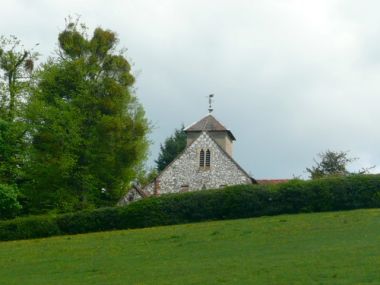Country walkers to be offered sleepovers in rural churches

England's remote and crumbling rural churches could be saved by being turned into hostels for country walkers to use for overnight stays.
The plan is among those being considered by a Government investigation into the future of England's churches and cathedrals.
The wide-ranging review, announced in the Budget, will be the first of its kind ever done. It is intended to see if there is any way of making England's thousands of buildings, many Grade One listed but with ageing and diminishing congregations, financially sustainable.
The Church of England has 16,000 parish churches, of which 45 per cent are Grade One.
Many churches have already adopted creative ideas.
At St James' in North London the Sherriff Centre operates a children's gym, café and fully functioning Post Office.
St Mary's at Beech Hill in Oxfordshire recently opened a community shop selling local produce.
In Ashford in Kent, St Mary's has broadened out to become a music and cultural venue.
However, not every church can be reinvented in such imaginative ways.
The review will look especially at rural churches where congregations are getting smaller and older and find it increasingly difficult to fund repairs.
Solutions are likely to include allowing rural churches to be used by walkers for overnight stays.
Local communities will also be empowered to take greater control of their local church for events and other uses.
A spokesman said the Church had always appreciated the value of these buildings and their worth in contributing to the present and future of local communities.
Bishop of Worcester John Inge said: "Churches offer space for prayer, worship and the bringing together of community, everywhere from inner cities to country villages. They are the jewel in the crown of our built heritage and immensely important community hubs."
He said the review group's remit to look at new models of financing repairs and maintenance of churches and cathedrals, as well as increasing community use, supports the Church of England's own aims. "That the Government taking responsibility in this area is very encouraging."
Sir Tony Baldry, chair of the Church's buildings council, said: "We are all very proud of the energy and innovation shown by churches up and down the country who are opening up their buildings in new and exciting ways. To have the Government's support in looking at the long term future of care, maintenance and financial sustainability is an appropriate recognition of the important role churches play in the life of the nation."

The National Churches Trust also welcomed the review.
Chairman Luke March said: "England's tripartite system of funding repairs to church buildings, with money coming from Government and national organisations such as the Heritage Lottery Fund, charities including the National Churches Trust, and local people and congregations, has helped many cherished places of worship.
"However, many more of these beautiful buildings continue to be under threat from leaking roofs, crumbling masonry and rotting timbers."
This is an opportunity to help more church buildings become community hubs, he added.
"The more church buildings are used by local people, the greater chance they have of being there for future generations," he said.
"England's churches, chapels and meeting houses are a unique part of our national story. I hope that the review's terms of reference will also allow for an examination of how churches can be more effectively promoted to tourists and visitors, who can bring with them much needed revenue to help support the long term future of religious heritage."











